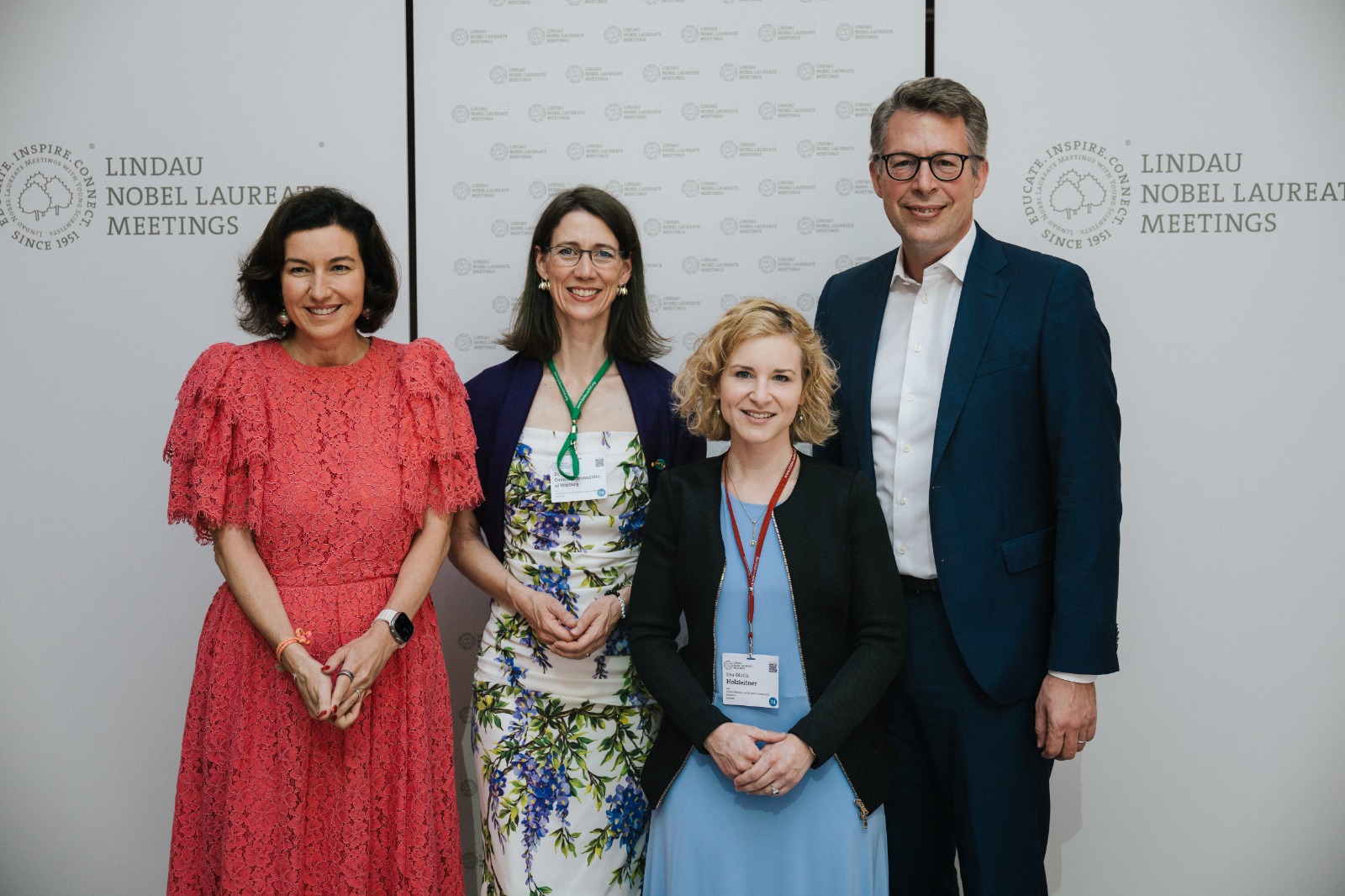
Artificial intelligence is rapidly transforming chemistry, accelerating discoveries and expanding scientific possibilities in ways once unimaginable, experts have warned.
Nobel Laureates at the 74th Lindau Nobel Laureate Meeting say this revolution hinges on preserving open scientific exchange and academic freedom.
Without free collaboration and international cooperation, the potential of AI-driven chemical research risks being curtailed by political and social barriers.
They said that while AI is not a replacement for human ingenuity, it is a powerful tool that enhances the ability to explore complex molecular problems.
John Jumper, the 2024 Nobel Laureate, whose breakthrough AI system accurately predicts protein structures, said the advances enable faster, more precise insights into biological and chemical processes.
David MacMillan, a 2021 Chemistry Laureate, described AI as a force that “helps us ask better questions and move faster towards answers", underscoring its role in accelerating drug discovery, sustainable materials and molecular design.
Frances Arnold, Nobel Laureate in Chemistry said “AI’s promise can only be realised within an open and collaborative research community”, highlighting the need for data sharing and cross-border cooperation to fully harness the technology’s potential.
Despite these advances, Bettina Wisborg, President of the Lindau Council, cautioned about the fragility of scientific dialogue.
“It requires all our commitment and ongoing support,” she said, emphasising the risks posed by growing geopolitical tensions and restrictions on researcher mobility.
“There can be no scientific excellence without international mobility and academic freedom,” said German Federal Minister of Research Dorothee Bär.
She praised Lindau as a rare global forum where scientists come together to share knowledge freely.
“There can be no scientific excellence without international mobility and academic freedom. Lindau offers exactly this: an extraordinary place of exchange between experienced and aspiring researchers from all around the world," Bar said.
"While societies are fragmenting and becoming more polarised, Lindau continues to bridge countries, generations and research areas. We will only be able to solve the great challenges of this century when we stand together.”
Austria’s Federal Minister for Women, Science and Research, Eva-Maria Holzleitner said her country is dedicated towards maintaining a safe and open research environment, acknowledging the increasing pressure on academic freedoms worldwide.
“Today’s meeting proves that the research community thrives on international cooperation. The research landscape needs reliable framework conditions and intellectual freedom to ensure successful collaboration. However, we are currently seeing that the freedom of science and academic research is coming under pressure in more and more countries," she said.
The week-long meeting features more than 30 Nobel Laureates and 600 young scientists from 85 countries. Sessions focus on AI’s transformative role in chemistry, sustainability, and science diplomacy.
Informal exchanges and Next Gen Science presentations provide a platform for emerging researchers to share pioneering work on AI-driven molecular modelling, green chemistry, and materials science.
The Laureates and young scientists alike stressed that AI-powered chemistry offers powerful tools to tackle urgent challenges including climate change, resource efficiency, and health.
But these technological breakthroughs must be accompanied by strong ethical frameworks and policies that protect the free flow of ideas.
As the meeting progresses, the consensus is clear, AI’s revolutionary impact on chemistry will only be fully realized if the scientific community remains open, collaborative, and committed to academic freedom.
The future of research, the Laureates agree, depends on safeguarding these principles amid an increasingly complex global landscape.


![[PHOTOS] KPC signs a service legal agreement with KEBS](/_next/image?url=https%3A%2F%2Fcdn.radioafrica.digital%2Fimage%2F2025%2F07%2Fa63c369d-7d4d-4a8c-bef9-34dba4c6d536.jpg&w=3840&q=100)









